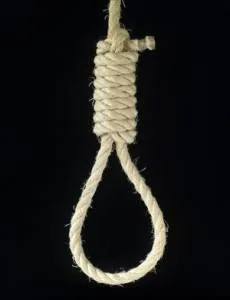How Many Words Have You Killed Today?
 Words are dying, and you probably aren’t doing anything to stave off the epidemic. How many times have you blindly followed what spell-check or autocorrect told you to do? How often do you eschew a colorful synonym in favor of the quicker, more obvious alternative?
Only a week after we learned that words gain and lose our affections simply by where their letters are found on the keyboard, another new study reveals that our modern ways are offing words at an unprecedented rate.
The data, compiled by a team of international scientists from more than two centuries’ worth of books published in English, Spanish, and Hebrew (some 10 million distinct words), is a bit complicated—after all, these aren’t linguists, but physicists testing out economic patterns and theories as they pertain to “competition between words” in the marketplace of readers and writers (or something like that). But they found that, over time, once-popular words were disappearing from books, particularly in more recent years. Why? Here are some highlights:
Words are dying, and you probably aren’t doing anything to stave off the epidemic. How many times have you blindly followed what spell-check or autocorrect told you to do? How often do you eschew a colorful synonym in favor of the quicker, more obvious alternative?
Only a week after we learned that words gain and lose our affections simply by where their letters are found on the keyboard, another new study reveals that our modern ways are offing words at an unprecedented rate.
The data, compiled by a team of international scientists from more than two centuries’ worth of books published in English, Spanish, and Hebrew (some 10 million distinct words), is a bit complicated—after all, these aren’t linguists, but physicists testing out economic patterns and theories as they pertain to “competition between words” in the marketplace of readers and writers (or something like that). But they found that, over time, once-popular words were disappearing from books, particularly in more recent years. Why? Here are some highlights:
- Automatic spell-checkers may be partly responsible, killing misspelled or unusual counterparts of accepted words.
- There might be a natural bias toward shorter words for ease of communication.
- At the same time, any new words that were born in the past 20 to 30 years have seen increased usage.
Differently-spelled words, beyond providing a dash of color—or colour—often evolved into new words with slightly different meanings; spell-check has all but stopped that phenomenon in its tracks. And then there’s what the study calls synonym death: that is, we simply don’t have time for a word like “roentgenogram,” which a century ago was the most frequently used term for what we now just call an x-ray.
The researchers found that more words have died in the past 40 years than during any other period covered by their data (1800 – 2008). While texting and the internet have introduced an entire new subset of words (such as “texting” and “internet”), it isn’t enough to offset the losses. Statistically speaking, the language is shrinking.
The good news is that words, unlike your goldfish or other endangered species, can’t die out irreversibly. And there’s no need to start sponsoring words in far-flung parts of the world or to gather them all into a preserve. Any word that disappears can always reappear—so long as people start using it again. (And some well-intentioned souls out there are doing what they can to help launch a comeback.)
Will you do your part? Or are there some words you’d just as soon see vanish forever?









